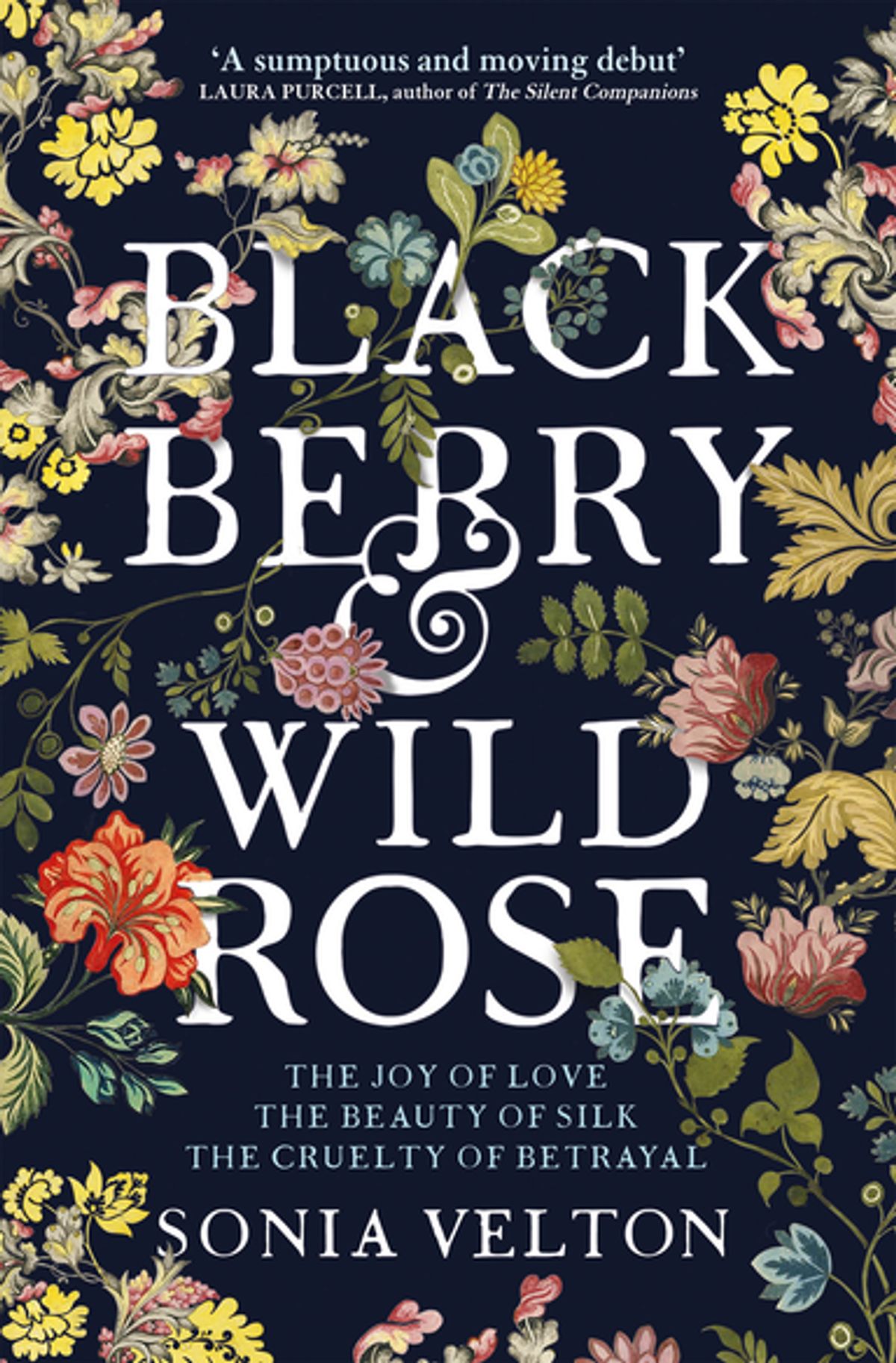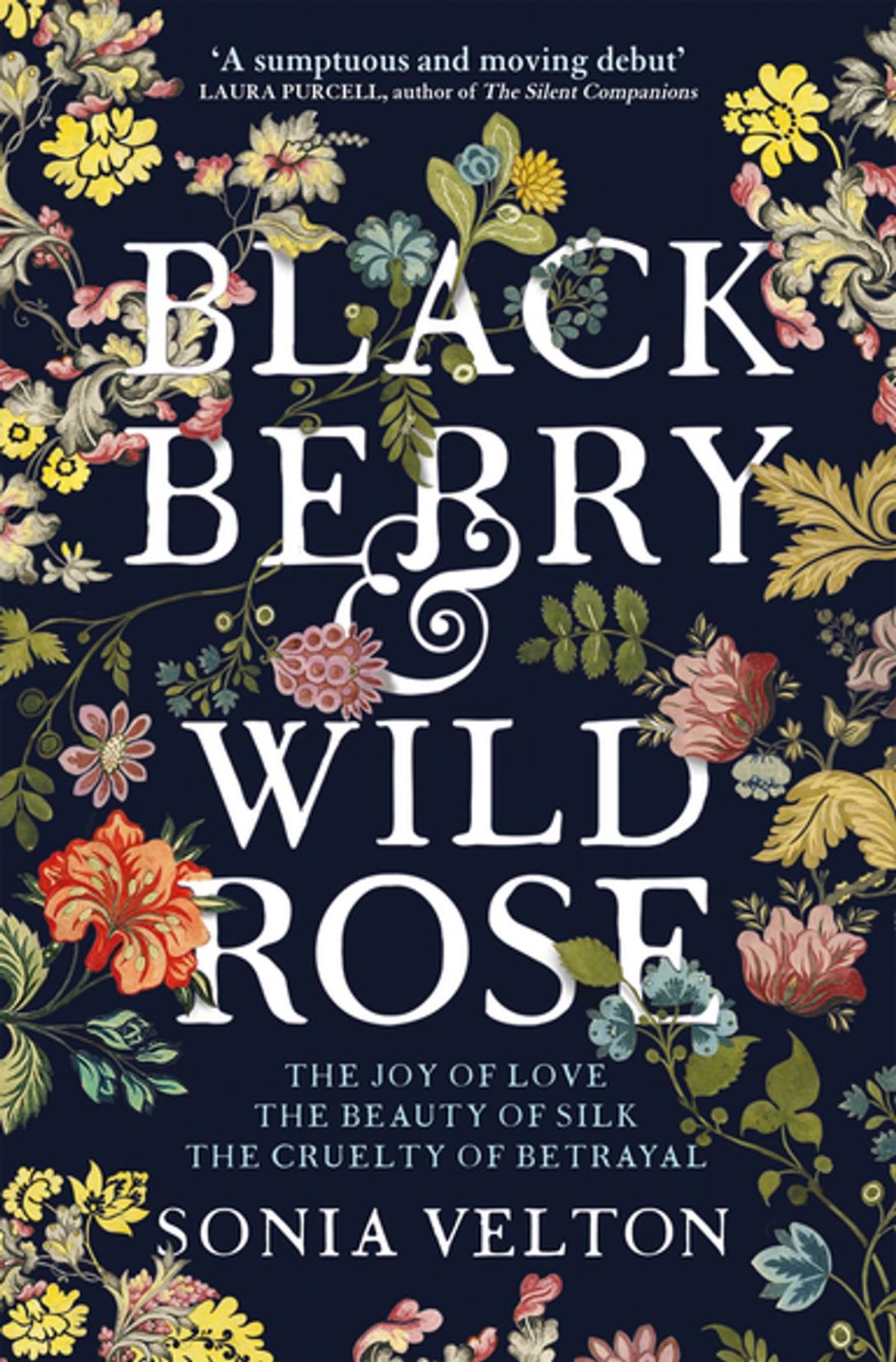

There is nothing like a rich and sumptuous historical novel and the cover of Velton’s Blackberry and Wild Rose was so beautiful I had high high hopes. Possibly too high.
The novel revolves around two women in eighteenth century London, a setting that I am not familiar with: the sixteenth century has been such a rich resource for historical novelists from C. J. Sansom’s Matthew Shardlake series, Phillipa Gregory, the exquisite Wolf Hall trilogy from Hilary Mantel and so many more; the nineteenth century carries its own rich creations from Dickens, the Brontes, Austen, Shelley, Stoker and Stevenson. The eighteenth century seems overlooked, at least by me. And the life of Huguenot silk weavers. Equally unfamiliar. Yet the image of silk, of threads bound together, warp and weft, the loom of the Fates… full of promise.
The two women in question – our two narrators – are Esther Thorel, the wife of a master silk weaver and – apparently – a devout Christian and Sara Kemp, a working class woman who arrived in London from the provinces and is quickly trapped into the life of a prostitute.
Esther takes it upon herself – in the pursuit of Christian Charity – to attempt to rescue Sara from her life as a prostitute and takes her on as a lady’s maid. At the same time, Esther’s husband allows Bisby, a journeyman weaver in his employ, to use the Thorel family loom to craft his master work, the silk which will allow him to be admitted as a master weaver.
Velton’s language is exquisite in places and her descriptions are vivid and sensory, especially of the silks and of Esther’s attempts to craft her own designs for silk weaving, an unimaginable feat for a woman in the eighteenth century when silk was as valuable as gold and silk cutting punishable with death. Her research is (so far as I could tell) thorough and authentic enough, the world created vividly. But the central plot was a little obvious: Esther was frustrated with her husband’s lack of engagement with her ideas at the same time as another man was making use of the house… the sensual possibilities of the silk weaving was almost inevitable and predictable.
The characterisation, generally, I felt, lacked something. There was the potential for nice tensions between Sara and Esther, neither of whom ever really trusted nor particularly liked the other but who were bound together by obligation, necessity, circumstance and debt. As Esther said, Sara
was like a cat sidling in uninvited and looking about. You don’t want to turn it out straight away so you offer it a scrap of food. The next thing you know it’s curled up on your favourite chair, watching you with unblinking elliptic eyes.
And on occasion, the same event was shown from both characters’ point of views interpreted slightly differently on each occasion. But this tension never really led anywhere. And neither woman came across as terribly likeable: Esther was an utter hypocrite, but there was a complexity about her life where she was forced into a situation where hypocrisy and self-delusion was the only way of surviving; Sara was more likeable but rather self-centred and opportunistic and manipulative.
The other side of the story was that of the silk weaver’s journeymen: working class impoverished men contributing the time, effort and skill to create the masterworkers’ goods, a tension exacerbated by cheaper inferior continental products. A powder keg of a situation. One which had the potential for violence and destruction. But again the workers, especially John Barnstaple the ring leader, were a little two dimensional.
For me, the highlight of the novel was perhaps the legal court case towards the end. But that perhaps reflects my own history as a barrister! The structure reminded me significantly of The Miniaturist by Jessie Burton: tangled and complex households in an historical setting fall foul of and end up entangled in the legal proceedings of the time. The comparison, however, reveals the gaps in Velton’s novel: that unsettling hint of something supernatural and eldritch in The Miniaturist, the deep and human characterisation, the tragedy of the conclusion. All that made Burton’s novel sublime and lyrical; and the comparison highlights the prosaic nature of Velton’s.
It is not by any means a bad novel: well written and engaging enough – although I found its conclusion distinctly underwhelming. It is just not a great novel. But for a debut, an impressive piece of work.
Ratings:
Overall: ⭐⭐⭐
Characters: ⭐⭐⭐
Plot / Pace: ⭐⭐⭐
Language: ⭐⭐⭐⭐
Publisher: Quercus
Date: 10th January 2019
Available: Amazon



I think you forgot your stars in the ratings
LikeLiked by 1 person
Dang! So I did! Thanks for letting me know!👍🏻
LikeLike
No problem!
LikeLike
The cover is absolutely beautiful and I’ve never heard of this. Unfortunate about the characterization but I’ll add it to my TBR list and give it a shot.
LikeLiked by 1 person